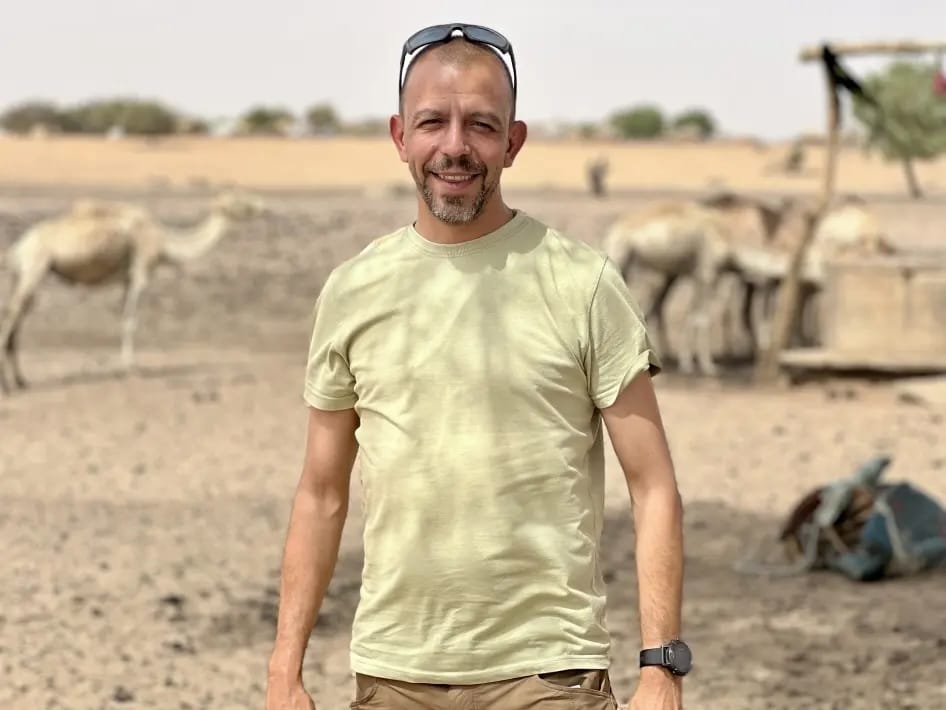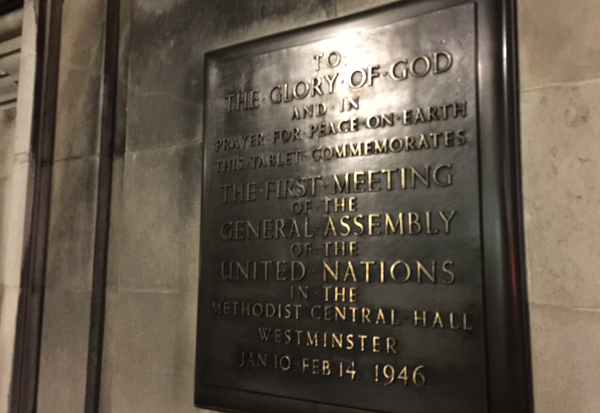Hope for Joe

Readers who followed me here from my newsletter at Human Rights Watch may remember the grim case of my one-time colleague at the International Crisis Group, Joseph Figueira Martin.
Joe was arrested by Russian forces in Zemio, in the Central African Republic, last year. He’d been working in the country as a researcher for a non-profit organization addressing poverty and gender-based violence.
Early on in his detention, the Russians interrogated and tortured Joe before turning him over to Central African Republic authorities in the capital, Bangui. Russian forces are all over central and western Africa today, including the Central African Republic, where they’re notorious for committing abuses, like torturing and killing civilians.
The last time I wrote about Joe, he’d spent a year in jail without having been convicted of any crime. There’d been no trial. In fact, authorities hadn’t even set a date for a trial.
Now, he’s finally been given a trial date. It begins on Tuesday, 28 October. After being detained in inhumane conditions for more than 500 days, Joe will finally have a chance to contest the charges against him.
The charges sound absurd: spying, trying to destabilize the government, working with armed groups, and financing armed groups. Absurd, yes, but extremely serious. They come with the possibility of life imprisonment.
It doesn’t help that Russian disinformation about Joe online has warped the public’s perspective of Joe’s case in the Central African Republic. Non-existent “ghost journalists” have been part of a coordinated Russian campaign of defamation and paid street protests.
Still, speaking with Joe’s brother the other day, I can tell you the family is hopeful the trial may finally move things forward toward Joe’s release. For the last year and a half, they’ve rarely had much reason to feel encouraged.
Joe is a citizen of both Belgium and Portugal, but what officials from these two countries have done to help Joe has been very limited. Neither country has a full embassy in the Central African Republic.
Belgian authorities have at least been in regular touch with Joe’s family and seem engaged.
Portuguese authorities, on the other hand, are nowhere. Portugal has been silent toward the family and the case overall. The family doesn’t understand why.
To his credit, the Portuguese Honorary Consul in Bangui, Victor Manuel Alves da Rocha, has visited Joe in prison many times. He’s brought him food and books the family sent. These were private visits, however, not official ones.
At the EU level, the European Parliament passed a resolution in July, condemning Joe’s arbitrary arrest and torture and calling for his release. It should have been the spark to get other EU institutions to take action, but there’s been no movement by the European Commission, nor the European Council.
The Commission told the family it’s an issue for the two EU member states, Belgium and Portugal, alone. This is ridiculous. Joe is an EU citizen, and they can and should be engaged as well. There’s nothing stopping them from adding their voice here.
Meanwhile, back in a Bangui prison, Joe’s health has suffered. He went on hunger strike for a time and lost 15 kilos (33 pounds). Joe was a pretty thin guy before all this. I can’t imagine him 15 kilos lighter.
Along with Joe’s family, I am keeping my fingers crossed that the trial beginning on Tuesday will be the first step toward Joe’s release. Obviously, the best outcome would be for the charges to be dismissed for lack of evidence or a not-guilty verdict delivered.
However, it may not be that simple.
Another possible ending to this case might be this: Joe gets convicted on some or all of the charges but is then pardoned or released and kicked out of the country.
It’s not ideal, but if it means Joe can come home, that’s the only thing that really matters right now.
=======
Quick links:
Learn more: The International Crisis Group recently released a good explainer video on Russian military efforts in Africa.
Fight tyrants: Technology is making it easier for governments to spy on us, block our free speech, and manipulate us. The Electronic Frontier Foundation has a campaign, “Take Back CTRL” to fight back against tyrants co-opting tech.
Honor courage: The European Parliament has awarded the Sakharov Prize to two imprisoned journalists: Mzia Amaghlobeli in Georgia and Andrzej Poczobut in Belarus. The annual award recognizes those who fight for human rights and democracy.



